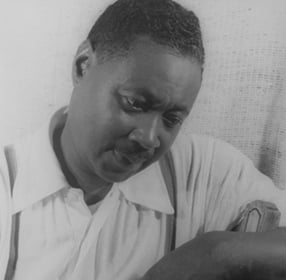“Lelia gal, why in this town do you stay?
Why, tell me, why did you wander away?
Why will you aimlessly foolishly roam,
Won’t you come back to your old country home?”
“Country life, Fed, has no pleasures for me,
I wanted de gay o’de city to see,
To wear ebery Sunday a prettier gown,
Da’s why I came to de beautiful town.”
“Well, have you gotten de joys dat you sought?
If so, were not all o’dem too dearly bought?
Yes, Liel, you do wear a prettier dress,
But have you not suffered, my girl, more or less?
“Hold up your head! look not down, tell me truth,
Have you not bartered your innocent youth?
Are you de Lelia, true Lelia, of old,
Or have you swopped out your honour for gold?”
“Fed, it was horrid de lone country life!
I suffered––for sometimes e’en hunger was rife;
An’ when I came, Fed, to try my chance here,
I thought there would be no more troubles to bear.
“But troubles there were an’ in plenty, my lad,
Oh, dey were bitter, an’ oh, I was sad!
Weary an’ baffled an’ hungry an’ lone,
I gave up my spirit to sigh an’ to moan.
“After dat?––O, Feddy, press me not so:
De truth?––well, I sank to de lowest of de low;
I gave up all honour, I took a new name
An’ tried to be happy, deep sunk in de shame.
“Dere was no other way, Fed, I could live,
Dat was de gift dat a gay town could give;
I tried to be glad in de open daylight,
But sorrowed an’ moaned in de deep o’de night.
“No, Fed, I never could go home again:
‘Worse than I left it?’ ah, there was de pain,
To meet up wid some o’ my former schoolmates
An’ listen to all o’ deir taunts an’ deir hates.
“Dere now, you bound me to tell you o’ all,
Of all de sad suff’rings dat led to my fall; I’m gone past reclaiming, so what must I do But live de bad life an’ mek de good go?”
“Lelia, I want you to come out de sin,
Come home an’try a new life fe begin;
Mek up you min’, gal, fe wuk wid you’ han’,
Plant peas an’ corn in de fat country lan’.
“Dere is no life, gal, so pleasant, so good,
Contended and happy you’ll eat your lee food;
No one at home know ’bout wha’ you’ve jes’ said,
So, Liel, of exposure you needn’t be ’fraid.”
“Don’t t’ink I care ’bout exposure, my boy!
Dat which you call sin is now fe me joy;
Country for Lelia will have no more charm,
I’ll live on de same way, ’twill do me no harm.
“And after all, many gals richer than me,
Pretty white girlies of better degree,
Live as I do, an’ are happy an’ gay,
Then why should not I be as happy as they?”
From Songs of Jamaica (Aston W. Gardner & Co., 1912) by Claude McKay. This poem is in the public domain.

